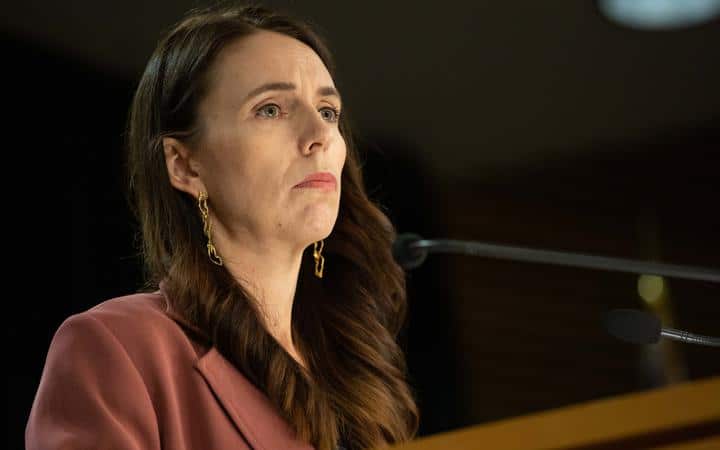Prime Minister Jacinda Ardern is giving an update after Cabinet’s discussions on additional ways to ease the cost of living pressure on families.
Ardern says the invasion of Ukraine has unleashed a “global energy crisis”, with all three fuel types rising for the highest amount on record. Prices have increased 13 percent in the past month.
“We are in a wicked perfect storm and it’s a storm that’s impacting many people’s lives.”
She says the impact of Russia’s war on Ukraine is expected to mean “continued volatility” for fuel prices.
Cabinet has agreed to reduce fuel excise duty and road user charges by 25 cent per litre, for 3 months, she says.
“This means a potential saving of between $11.50 and $17.25 per tank of fuel.”
In additional all public transport fares will be halved for the next three months. “We hope this ensures that where the option of shifting how we travel is available, this makes it more affordable to take that public transport option up.”
Finance Minister Grant Robertson says the fuel excise change will come into force from 11.59pm tonight, and it will be reviewed before the three months is up.
“We cannot influence the global oil price and so therefore if we want to relieve some pain at the pump we need to look at the things we can control.”
He says the change can be made within hours, rather than the months it typically takes to make changes to the tax system such as GST.
Petrol prices are expected to continue to rise and is not over yet, he says, and the government will also outline over the coming days the means by which the change will be reversed, but it is likely to be gradual.
He says the road user charges will take longer to implement, but he says it will last for three months.
It’s possible this could include a change to legislation. The three-month period for road user charges would begin from whenever the order comes into effect, he says.
Local authorities in practice set public transport fares, but Robertson says they will be reimbursed. He says the government is unable to set fare reductions but he is confident councils will “welcome this change and implement it speedily”.
This will feature in Budget 2022, so he thinks it is appropriate for it to last for the three months which would take us up to the May Budget.
Fuel excise goes directly into the National land transport fund, which pays for roads, public transport and walking and cycling infrastructure across New Zealand. Robertson says this work cannot afford to be delayed so the fund will be topped up for the expected loss of revenue. This is expected to be $350 million.
“We will be meeting the cost of this through savings and reprioritisation from the Covid response and recovery fund, in particular the reduction in costs related to MIQ.”
The public transport fare subsidy is expected to cost between $25m and $40m, which will also be met from the Covid fund. Because it is a reprioritisation from the existing fund, it is already factored into the Budget forecast so can be met without increasing debt.
He says the situation highlights the shift to decarbonising.
“The reasons for us to need to do so as a country have never been more stark.”
Secondly, it highlights the importance of support for those most affected by cost-of-living increases, he says, and the measures outlined by Ardern are intended to address this.
Energy Minister Megan Woods says she has been speaking to fuel company chief executives and most are indicating they are ready to reduce the price of petrol from midnight tonight.
Prime Minister Jacinda Ardern told Morning Report that “undoubtedly for many families” the cost of living was a crisis, but would not be drawn on specifics that Cabinet may consider, including a temporary removal of petrol taxes.
Source: rnz.co.nz Republished by arrangement.

